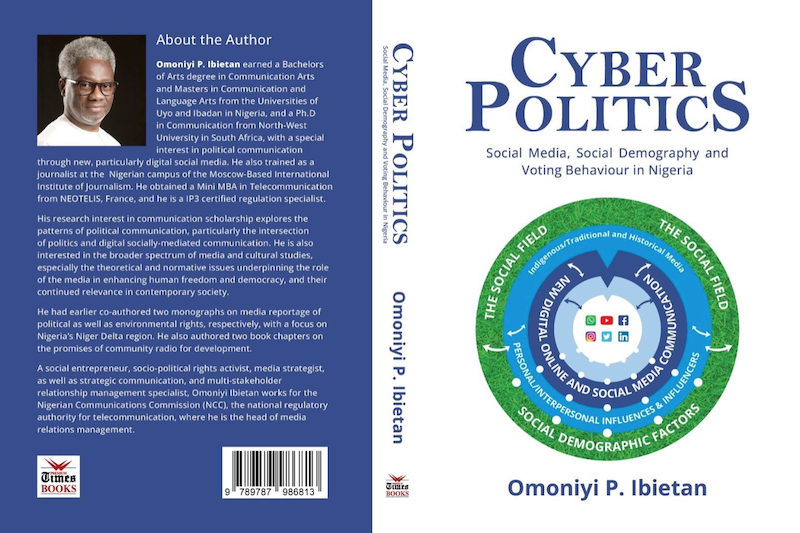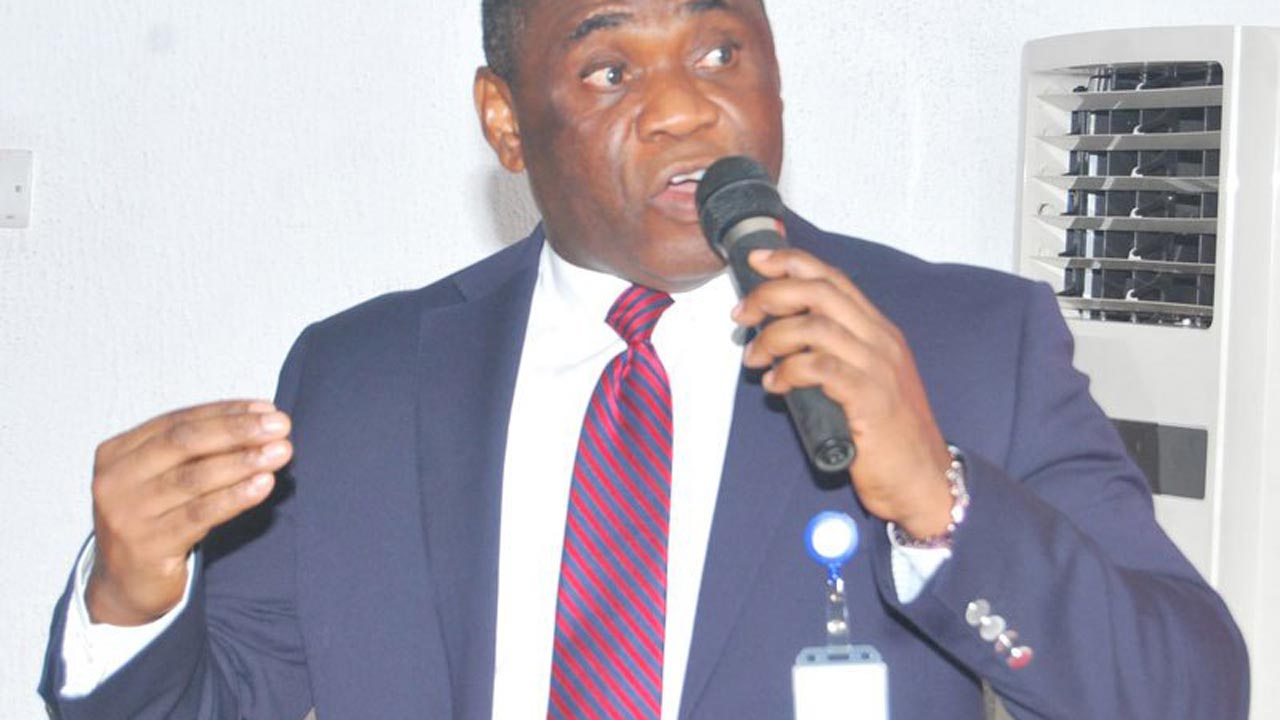By Tony Ojobo
The telecommunications industry has undoubtedly witnessed tremendous growth and development in Nigeria. It is a sector that directly impacts every aspect of human life, business, education, governance, family, entertainment, etc. Growth in the industry was slow for several years after Nigerian Independence. The total telephone subscriptions from Independence in 1960 to 2001 was a paltry 400,000 connected analogue lines, translating to a teledensity of 0.04%. This number of telephone lines was considered inadequate for a population of 126.2 million in 2001, according to the World Bank, when the Nigerian Communications Commission (NCC) licensed the Digital Mobile Operators.
Before the advent of digital mobile service in the country, applicants for telephone lines waited for years to get a telephone line. The waiting time in some cases was up to ten years. Customers who needed to make international calls went to the international call centre at NECOM House Marina, Lagos, to make such international calls. As a young Commercial officer in the Nigerian External Telecommunications (NET) Limited in 1982, I witnessed parents from different parts of the country come to NECOM House on Marina, Lagos, to make international calls to their wards overseas. NET Limited Call centre was one of the few locations where customers could make international calls. The only exceptions were some embassies, oil companies and international banks, and a few individuals with International Direct Dialing (IDD) and Alternate Voice and Data (AVD) services.
Generation Zs (people born between 1981 – 1990) and Generation Alpha (born between 2010 – 2020) would find this amusing; it sounds more like a fairy tale. Yes, those were the days we were still in the dark. The situation persisted even after the emergence of the Nigerian Telecommunications Limited (NITEL) in 1985. The military government formed NITEL through the merger of Posts and Telecommunications (P&T), responsible for domestic/national telecommunications services, with NET Limited, responsible for international telecommunications services.
I can vividly recall that at NITEL, Shomolu Exchange, where I was the Business office Manager, the organization processed applications under what was then known as “Capital contribution”, a scheme where applicants contributed various sums of money, depending on location, to get NITEL services extended to their homes and offices.
In realization of the challenges, and the inability of NITEL, as a monopoly, to provide enough telephone services in the country, the then Military government promulgated Decree 75 of 1992, establishing the Nigerian Communications Commission (NCC) as the industry regulator for telecommunications. The establishment of the NCC set the pace for the deregulation of the sector—the then Minister of Communications’ Engr. Olawale Ige played a vital role in the deregulation exercise. Engr. Ige in the year 2000, eventually became a member of the Board of Commissioners at the NCC.
The Decree specified the following, among others, as the functions of the NCC. Facilitate investments in and entry into the Nigerian market, protect and promote the interest of consumers against unfair practices, and ensure that licensees implement and operate the most efficient and accurate billing system at all times. Other functions include:
- Promoting fair competition in the communications industry.
- Protecting communications services facilities.
- Preventing service providers from misusing market power or anti-competitive and unfair practices, among others.
The Decree further stated the objectives of the Commission to include the promotion and implementation of the national telecommunications policy, establish the regulatory framework for the Nigerian Communications industry and promote the provision of modern, universal, efficient, reliable, affordable, and easily accessible communication services. Some other objectives mandate the Commission to encourage local and foreign investments in the Nigerian communications industry, introduce innovative services and practices in the sector, encourage fair competition, and promote Nigerian participation in the ownership, control, and management of communication companies and organizations.
The Nigerian Communications Act set the above objectives to ensure a vibrant communications sector, with functions and purposes necessary for a potent independent regulator. Industry watchers believe that the Commission’s performance in regulating the industry depends on its ability to align actions with the objectives.
At the return of democratic governance in 1999, the government of President Olusegun Obasanjo was keen on transforming the communications sector. President Obasanjo personally invited investors to invest in the industry during his diplomatic shuttles. Nigeria was smarting from the effect of military governance. The developed countries were still uncertain of the safety of investments in the country due to prolonged military rule. Some major global telecommunications companies, like Vodafone and others, spurned the invitation, showing a lack of interest in the Nigerian telecommunications market. The international community still viewed the country as a pariah at that time.
Despite the lukewarm attitude received from some international investors, the government was determined to confront these challenges. In a demonstration of its commitment, a Board of Commissioners was constituted for the Nigerian Communications Commission, Chaired by a renowned technocrat, Alhaji Ahmed Joda, and the former President of the Association of Telecommunications Companies of Nigeria (ATCON), a technocrat, an astute engineer, Dr Ernest Ndukwe, FNSE, as the Executive Vice-Chairman and Chief Executive of the Commission. The other members of the Board were Engr. Olawale Ige, former Minister of Communications, Austine Otiji, former MD of NITEL, Engr. Patrick Kentebe, Engr. Shola Taylor, Engr. Isaiah Mohammed, Engr. Zimit, Engr. Don. Udeh, among others.
Ahmed Joda’s Board understood the enormity of the responsibility placed on them and set out to build one of the most respected regulatory bodies in the world. The Board embarked on extensive consultations worldwide with regulators such as the Federal Communications Commission (FCC) in the United States of America and other regulatory bodies worldwide. The Commission also approached the World Bank for assistance and support. It engaged the services of consultants such as Deloitte & Touché, Detecon GmB of Germany, USAID, and Growing Businesses Foundation, among others, to assist with building a strong, independent regulatory body for the communications sector.
Two critical objectives to address were (i) the need for institutional strengthening through the adoption of an appropriate organizational structure and (ii) the engagement of the proper fit of professionals to implement the organizational objectives.
The Board enjoyed the government’s support, which allowed it to operate freely without interference. President Obasanjo’s government respected the regulator’s Independence and did not interfere directly in its regulatory functions. The government of the day had the political will to build a solid and vibrant communications industry. It neither interfered with the Commission’s recruitment processes nor the regulatory functions of the Commission. The Communications Committees in the National Assembly were very professional and thorough with their oversight functions. All these contributed to the birth of a potent, vibrant, independent regulator.
Topmost on the agenda of the Commission was the licensing of operators to provide services to Nigerians, who long desired communication services. The Board engaged the services Spectrum International Consulting Limited of UK as the Consultant to advise on the appropriate auction method for the spectrum licenses. Simultaneously the Commission was addressing the institutional strengthening, spectrum auction methodology, and engagement of competent human capital to deliver on the mandate.
Some of the factors that contributed to the success of the various exercises in the Commission include the political will on the part of the federal government to transform the sector, the professionalism of the Board of Commissioners, focused leadership, clarity of vision, and an understanding of the assignment, selfless leadership, a commitment to hiring the best hands, and desire to succeed. To remain a professional regulatory body, the Commission should maintain these tested virtues in its regulatory processes.
The organization must ensure that responsibilities are clear and competence is recognized. The Commission should maintain the six core values of integrity, excellence, professionalism, responsiveness, innovation, and commitment in its oversight of the communications sector. There is a need to underscore the point that recruitment processes should take cognizance of people who possess the required fit for the job. When regulators compromise on getting the right persons for the job, it leads to a decline in standards and effectiveness. The actions of the supervising Ministry should not in any way undermine the Independence of the regulator. The Commission should be professional in handling matters that could compromise its Independence and thus weaken the organization’s ability to regulate the sector effectively.
The current data from the communications regulator shows the sector’s growth level. The subscriber base for mobile services as of June 2023 is 223,338,215. Fixed wired/wireless services, 96,913, VoIP 228,553, bringing the total number of subscribers to 223,663,521. Recently the Commission licensed 25 Mobile Virtual Network Operators (MVNO) to provide services in the country. These new licenses issued by the regulator further underscore the maturity of the sector and the opportunities that abound. The revolution in the Fintech space, education, commerce, agriculture, health, security, and entertainment, all enabled by internet technology, cannot be over-emphasized. The e-enablement in these sectors requires that the regulator should not be hindered from performing its functions. The telecommunications sector, a sub-sector of the ICT sector, which contributed 14.13% to GDP, out of the 17.47% for the entire ICT sector collectively in Q1 2023, should be given its flowers.
The imperative of sustaining these significant milestones in the communication industry is critical. The 22 years of mobile communications in Nigeria have improved the quality of life in commerce, education, security, health, entertainment etc. Digital technology’s impact on Nigerians’ standard of living cannot be over-emphasized. Imagine banking without the internet, the services of online stores such as Konga, Jumia and others. The introduction of hailing services like Uber, Bolt, and others. What of payment platforms for online transactions, mobile banking, and e-enabled services? There are just too many businesses piggybacking on digital technology. These have happened because the organization’s Board, management and staff laid a solid foundation 22 years ago. The subsequent Boards, management and staff of the Nigerian Communications Commission should continue to build on the labour of these heroes of digital Nigeria. Sustaining the gains made so far in the sector is the responsibility of all stakeholders, especially the regulator.
The revolution in the digital technology space must continue unabated.
Tony Ojobo, PhD, former Director of Public Affairs, Nigerian Communications Commission, and President African ICT Foundation wrote from Abuja




